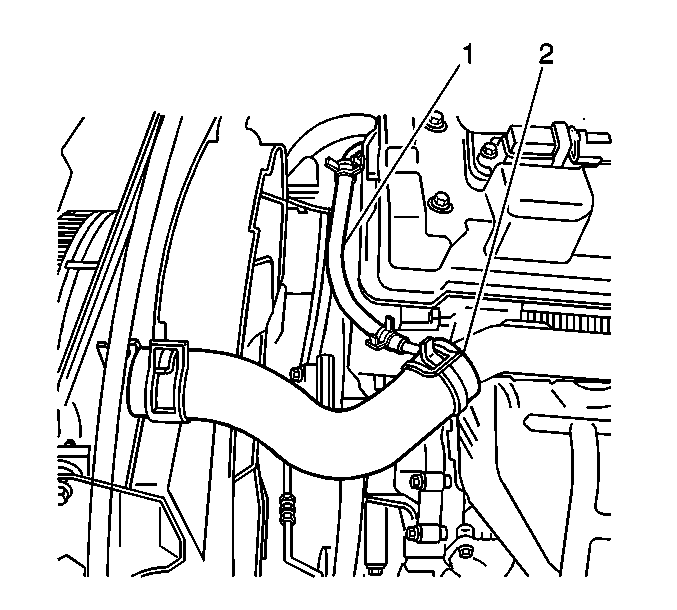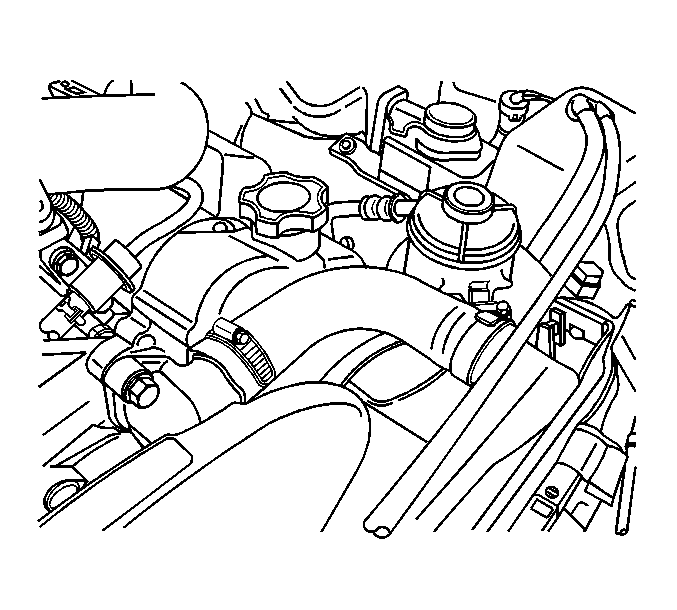For 1990-2009 cars only
Radiator Inlet Hose Replacement 2.0L Engine
Removal Procedure
Caution: To avoid being burned, do not remove the radiator cap or surge tank cap while the engine is hot. The cooling system will release scalding fluid and steam under pressure if radiator cap or surge tank cap is removed while the engine and radiator are still hot.
- Drain the engine coolant. Refer to Cooling System Draining and Filling .
- Loosen and reposition the hose clamp on the radiator inlet hose (2) at the radiator.
- Loosen and reposition the hose clamp on the radiator inlet hose at the coolant pipe.

Remove the radiator hose (2).
Installation Procedure
- Position a new hose clamp on each end of the new radiator inlet hose (2) before installation.
- Install the new radiator hose to the coolant pipe and to the radiator.
- Secure with two hose clamps.
- Fill the radiator with an approved coolant. Refer to Cooling System Draining and Filling .

Radiator Inlet Hose Replacement 2.5L Engine
Removal Procedure
Caution: To avoid being burned, do not remove the radiator cap or surge tank cap while the engine is hot. The cooling system will release scalding fluid and steam under pressure if radiator cap or surge tank cap is removed while the engine and radiator are still hot.
- Partially drain the engine coolant. Refer to Cooling System Draining and Filling .
- Loosen and reposition the hose clamps at the radiator outlet, and the thermostat housing.
- Remove the radiator outlet hose.

Installation Procedure
- Position new hose clamps on each end of the new radiator outlet hose.
- Install the new radiator outlet hose to the thermostat housing and to the radiator.
- Secure the hose with the hose clamps.
- Fill the radiator with an approved coolant. Refer to Cooling System Draining and Filling .

